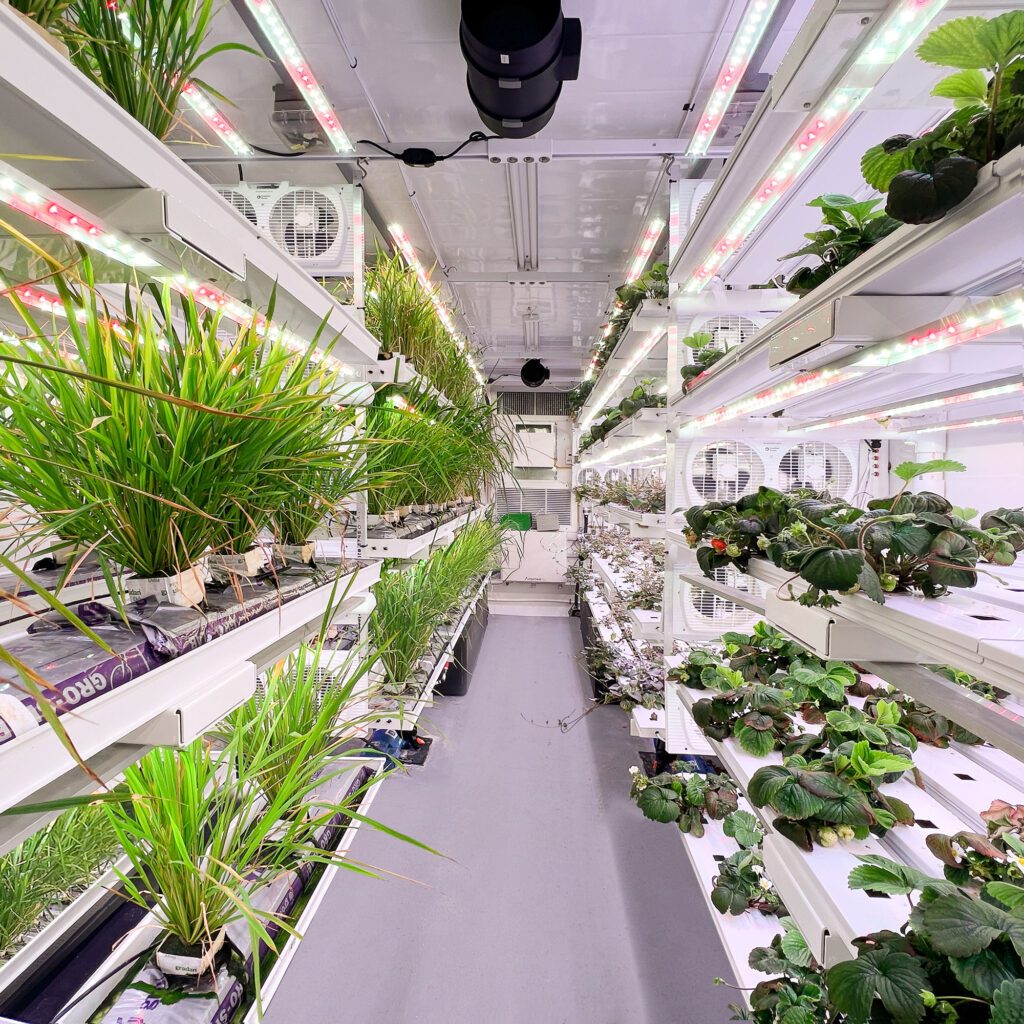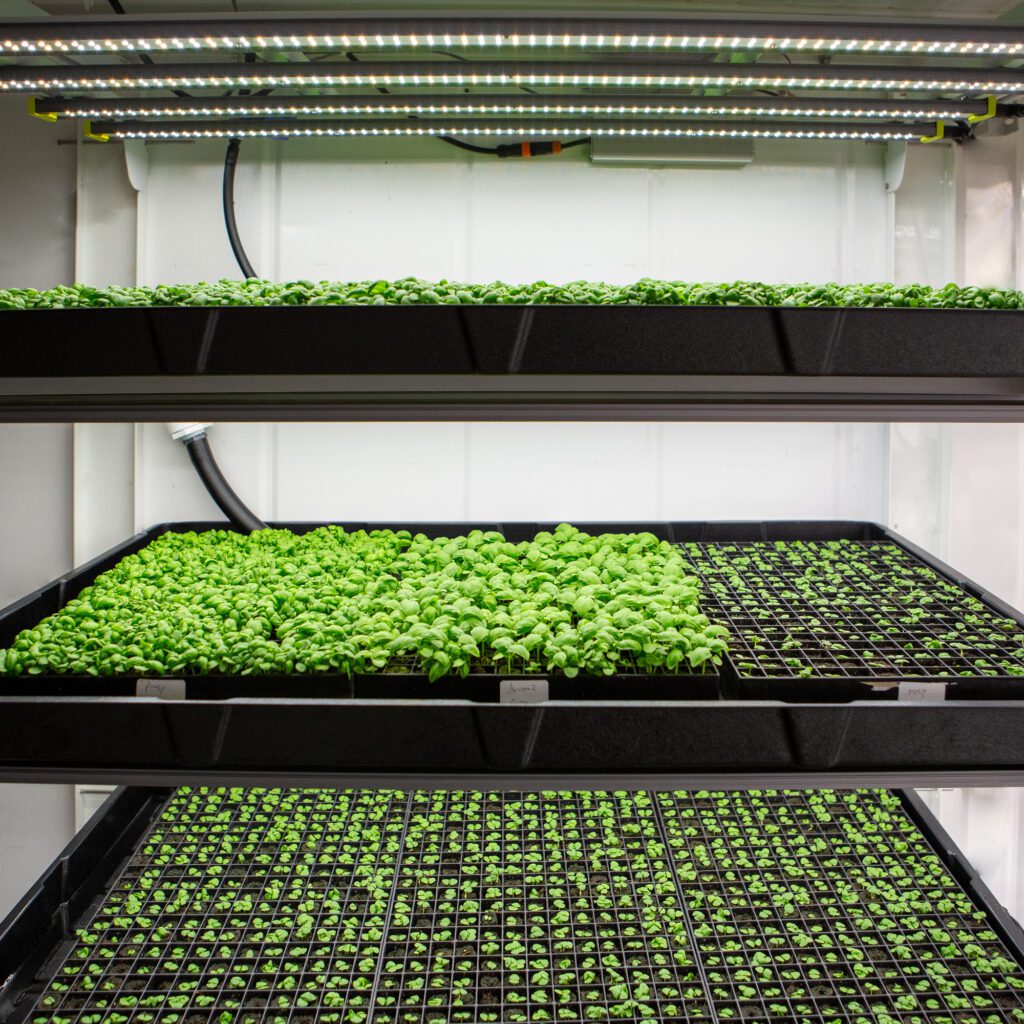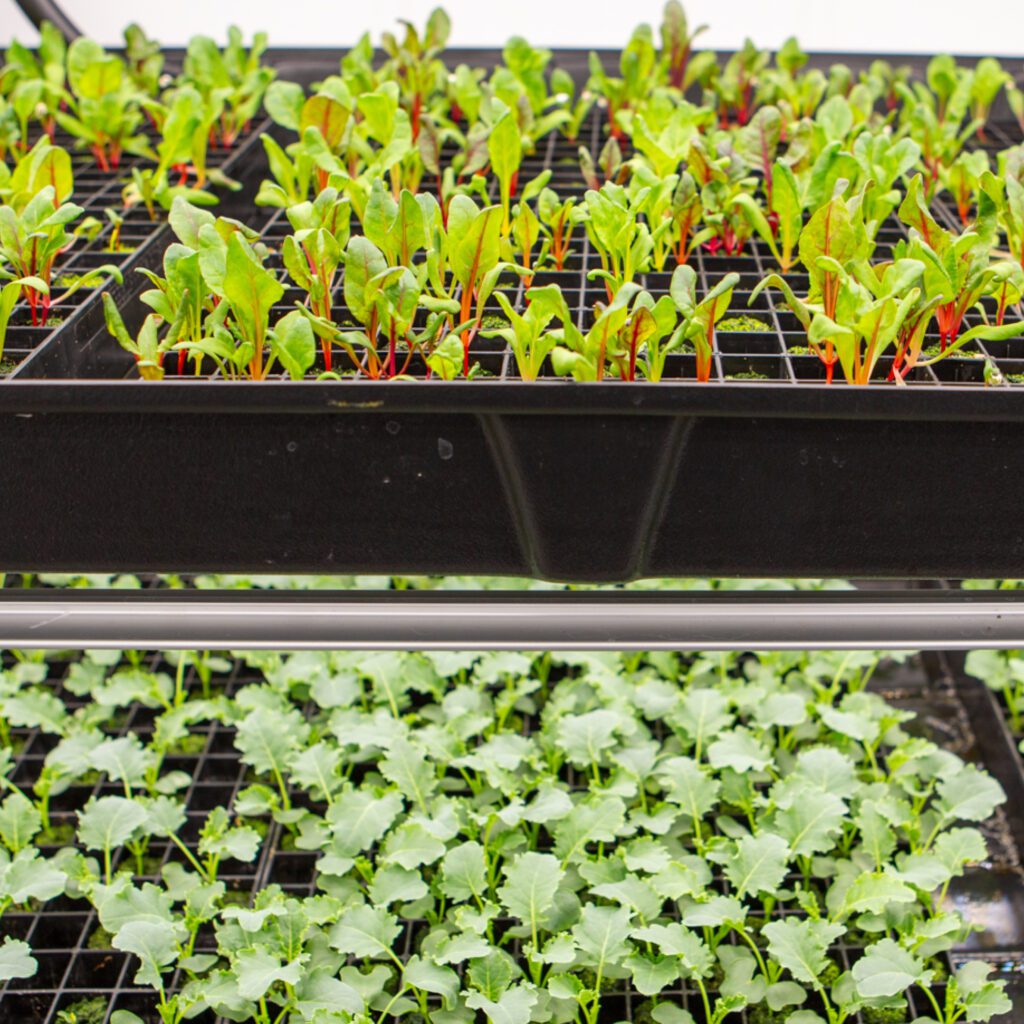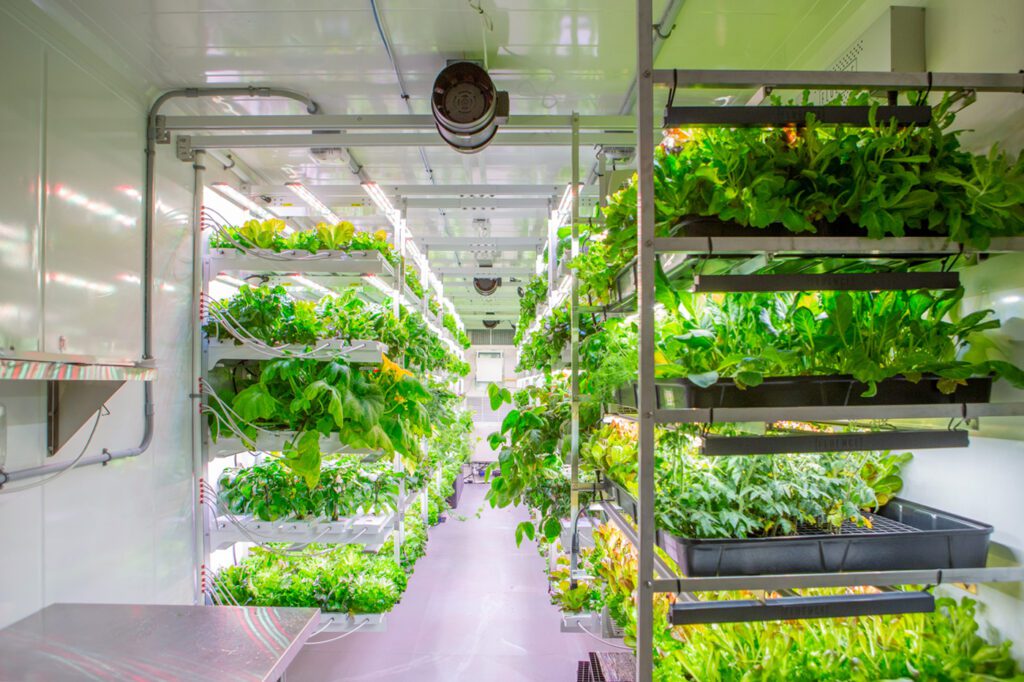Research on Controlled Environment Agriculture Reaching New Heights With Vertical Farming Labs
by PAUL CATALA
As the human population and global development continue to increase, the availability of land for agriculture decreases and the need to grow up rather than out increases.
That’s why vertical farming, the practice of growing crops in vertically stacked layers, is becoming a more popular and viable method of farming for the future. And through the cooperation of Charleston, S.C.-based ag tech company and the United States Department of Agriculture (USDA), research in Controlled Environment Agriculture (CEA) is growing.


AmplifiedAg Inc., an ag tech company focused on CEA, in September announced a new contract award from the USDA Agricultural Research Service (ARS) in Fort Pierce to supply vertical farming research labs to the agency’s Horticultural Research Laboratory. Those new labs will be customized to carry out CEA vegetable production research unique to the Fort Pierce laboratory.
In addition to Fort Pierce, AmplifiedAg supplied 16 vertical farming labs to the USDA-ARS U.S. Vegetable Research Lab in Charleston, S.C., designed to support its CEA research in vegetable growing processes, LED spectrum analysis, renewable energy, plant pathology, and plant breeding and selection for controlled environments, according to AmplifiedAg.
One of the top advantages of utilizing vertical farming technologies is increased crop yields that come with smaller areas of land. It also offers increased ability to cultivate a larger variety of crops simultaneously because crops don’t share the same plots of land while growing.
Don Taylor, CEO and Founder of AmplifiedAg Inc., said his company is working hard to provide innovation and research in ARS labs across the U.S.
“The USDA has done a tremendous job of supporting research efforts in controlled environment agriculture, urban farming, and sustainable farming practices,” Taylor says. “We’re extremely proud to be a provider for their continued innovation and research at ARS laboratories across the country.”
David Flynn, AmplifiedAg vice president, says with the advent of CEA farming, the work and research his company is doing is helping to foster the advantages that type of agriculture offers.
Flynn has been with AmplifiedAg since it was founded in Charleston in 2016. He says the contract with the USDA and eventually the Fort Pierce Horticultural Research Laboratory evolved from the USDA’s relationship with the Charleston office. In 2018, discussions began about the USDA’s interest in CEA and the research AmplifiedAg was doing.
“They discovered that our containers would be optimal for research because they’re super controllable. There’s no better environment to control than these containers,” says Flynn, who has overseen numerous company functions, including development of the software, hardware, farm construction and maintenance capabilities.
The AmplifiedAg vertical containers are recycled shipping containers with R28 thermal resistance insulation. In 2021-22, three contracts for those containers were signed for the Charleston laboratory. Flynn says word got out about the product and in 2022 Dr. Jinhe Bai, research plant physiologist in Fort Pierce introduced Flynn to Erin Rosskopf, Fort Pierce USDA microbiologist, which marked the start of AmplifiedAg’s relationship with the USDA at Fort Pierce.
“It’s really a feature of part of our sustainability values of our company to repurpose these containers for good. That’s really the genesis of where it came from,” says Flynn, who also advises independent and established operators on the advantages of the AmplifiedAg’s platform.
Flynn says another reason behind AmplifiedAg’s affiliation with USDA Fort Pierce is to study the impact of multi-spectrum Light Emitting Diode (LED) lights on plant growth in general as well as to do research on carrot production in CEA – and that’s another factor for the use of the company’s vertical farming expertise.
“So, this is really exciting for us because it’s the first purpose-built machine that we’ve done to grow root vegetables. We usually do leafy greens; we built more than 250 machines for those. But the Fort Pierce lab asked about growing carrots. We were intrigued, so we decided to custom-build the first of its kind for the lab in Fort Pierce,” he says.
At the Fort Pierce ARS, there are already lab buildings on site, but AmplifiedAg’s aluminum or steel shipping containers can be positioned outside of their labs instead of having to build new greenhouse and vertical farming facilities. The shipping containers have a 10-year sea life span and at the end of that, AmplifiedAg is able to get Grade A containers “that are best repurposed for this mission,” says Flynn.


The two Fort Pierce ARS containers are 40-feet long, 8-feet wide and 9-feet, six-inches tall upcycled into growing machines, specifically research labs. The containers’ costs vary based on customization and what type of lights are installed, but are generally $130,000 per unit.
“So, they’ll have 640 square feet of research laboratories to conduct all the missions that are laid out,” Flynn adds.
Currently, AmplifiedAg has a total of 16 containers in Charleston and the two in Fort Pierce, although Flynn says his company has generated interest from other laboratories from across the U.S. He says hundreds of containers have been deployed to U.S. businesses as far as Alaska, but the Fort Pierce USDA ARS is the first venture in Florida.
“We’re excited to get into the USDA because what the USDA does for the industry is huge; they’re going to conduct research and then publish that research for the benefit of Controlled Environment Agriculture, which is a growing industry,” he says.
“Controlled Environment Agriculture as an industry is really important to the food supply in general. We’re not going to replace traditional agriculture but with the world’s population expanding by 2 billion people between now and 2050 and the deficit of arable land … across the globe, the impact that CEA will have on our food supply is going to be greatly needed,” says Flynn. “The interest the USDA has taken into expanding the CEA industry is evident by what they’re doing now, putting more investment into CEA to help the industry at large – that’s partly the future of agriculture.”



